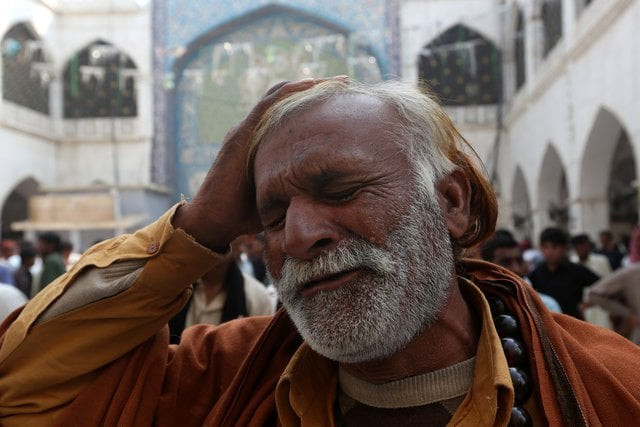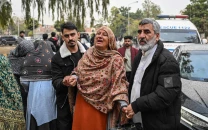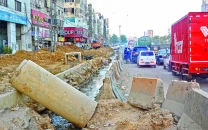Terror returns: We need to look inward
Intelligence reports suggest that the various militant factions have now regrouped

PHOTO: REUTERS
Terror threat: Security alert for Pindi’s district courts
At the end of 2016, violence in the tribal belt had receded by 14%, but overall terrorist incidents had gone up by 4% in the urban heartland where it hurts the most. A senior security official said that while the threat was the highest in Bajaur Agency it was Mohmand Agency that bore the brunt of terrorist violence. In Khyber-Pakhtunkhwa, the threat alerts were mainly concentrated to Charsadda, Swabi, Mardan, Peshawar – and more worryingly Swat, the areas that had been previously cleansed of terrorists.
“There were two phases of the major crackdown against militants of which Zarb-e-Azab was an extension,” said an official based in K-P. “While we completed Phase-I quite successfully by dismantling terrorist bases on our side of the border, we have not been able to move to Phase-II which is eliminating terror sanctuaries across the border,” the official told The Express Tribune. “We have been surprised by the extent of what is at hand because Phase-II was not pursued as vigorously as it should have been,” he said, requesting anonymity because he was not authorised to speak to the media on record.
Intelligence reports suggest that the various militant factions have now regrouped. “The emergence of so many claims of responsibility from different factions is not a coincidence,” an intelligence official said. “It’s not entirely unanticipated as it seems and is being tackled at the highest level.” He added that the safe havens of terrorists across the border were the ‘breeding grounds’ and an effective border management system on along the entire border was of utmost importance. With the losses suffered in Syria, Iraq and the larger Middle East “Afghanistan seems like a ripe recipe for terror networks that are now seeking newer sanctuaries and outreach,” he added.
Army chief welcomes Afghan proposal of mutual coordination against terror
In its security assessment – a copy of which is available with The Express Tribune – the Fata Secretariat as early as September had suggested that the Mexico-US model be considered because of “visible terror sanctuaries in Kunar and Nangarhar provinces of Afghanistan”. Any lapse in pursuing the border management which was in installed on June 1 last year “could have drastic consequences for the security of Pakistan”, it reads.
But critics believe that the recent wave of terror is not only the cause of an effect that lies beyond the borders. “Survival is next to victory,” says Zafar Habib, who teaches Conflict and Development at the Institute of Management Sciences. “Terrorists have realised that their survival and effectiveness is in staying united,” says Habib, who believes that although we might have cleansed our physical terrain of militant hideouts in the tribal areas, the trickle-down effect is now in the cities.
“Urban centres provide a cover because of their density,” he adds, arguing that the policies specified for warzones do not necessarily bear success in cities in the context of the National Action Plan. “Borders are for countries, they have little meaning for transnational terrorists,” he added.
Apex committee meeting: Punjab seeks Rangers help after terror wave
In comparison to other parts of the country, the attacks in K-P and Fata have had a lesser detrimental impact. “One reason is being a war-hardened area the other lies in the fact that the consistent mistakes have been rectified because this is the new normal,” said a K-P police officer as a warning.
Published in The Express Tribune, February 22nd, 2017.



















COMMENTS
Comments are moderated and generally will be posted if they are on-topic and not abusive.
For more information, please see our Comments FAQ